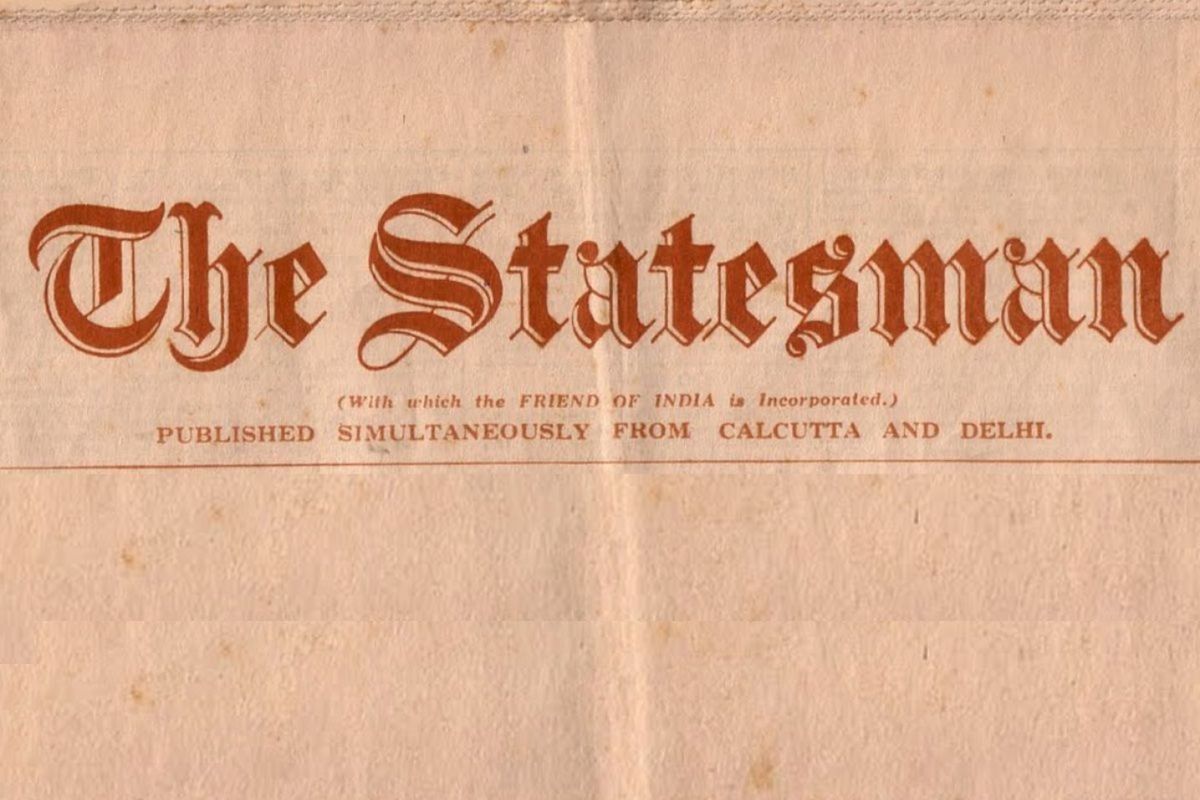A New Day, A New Dawn
There is a surprise for the readers. A special Poila Boishakh gift from none other than West Bengal chief minister Mamata Banerjee. Who has written a piece for this special edition.
On this day a century ago, these were some of the news items The Statesman readers got to read about India and the world.

OCCASIONAL NOTE
No one who remembers the scandals connected with the South African War, or still later scandals connected with military administration in Great Britain, will refuse his mead of sympathy for the feelings with which Amanulla Khan must have perused the intercepted report of the Afghan officer sent out to inspect the frontier guards immediately before the outbreak of war. If the report did in fact reach the Amir he must have felt distinctly annoyed to learn that, at the head of the Khyber Pass his military power was represented by two men instead of two hundred, and that a number of forts were without any garrison at all. It is on record, in connection with the visit of late Habbibullah Khan to India a dozen years ago, that the then Amir was profoundly impressed by a review of troops to which Lord Kitchener treated him at Agra. The amenities of the occasion were, however, somewhat marred by a “scene” between the Amir and his Commander-in-Chief, whom he turned upon and rated soundly in Persian for having assured him that the Afghan army was second to none. Great improvements were, as a matter of fact, imported by Habbibullah after his visit to India, but it is easy to imagine that a very few weeks of such a government as Amanulla’s would be quite sufficient to demoralise a more useful army than that of Afghanistan.
SHOCKING ACCIDENT AT BOMBAY DOCKS
Advertisement
BOMBAY, JULY 23
A shocking accident occurred yesterday on board the steamer Franz Ferdinand at Alexandria Dock. It appears that Private Thomas Wright was on duty at the wharf yesterday morning when he saw a Hindu put his head through a port hole of the steamer. A steel cable was drawn tightly from the steamer to the wharf and ran just under the port hole. Owing to the movements of the steamer due to the rise and fall of water the cable suddenly tightened and cut off the man’s head. The police on making enquiries on board ascertained that the man was not employed on the vessel and should not have been there. No one came forward to identify the body which was removed to the morgue. At the Coroner’s Court the jury returned a verdict of accidental death.
RAILWAY FARES
In a communication to the Government of India, the Indian Merchants Chamber draw attention to the present increased railway fare. In the interests of the poor and middle classes they ask that third class rates prevailing before June 1919 should be restored as far as possible. They urge the reduction in second class fares on the ground that it is somewhat excessive. No reduction in first class fares is asked, on the ground that they are comparatively lower than in other countries and in view of the facilities and accommodation given. Resumption of the issue of first and second class return tickets is also suggested. The committee ask for the removal of the surcharge on goods traffic as it was understood to be a war measure.
RIDING A HORSE TO DEATH
At the Colombo police court, Mr. D.S. Senayaka, the owner of a racehorse named Ali Sloper, charged Marie, his riding boy, with mischief by riding his horse to death. Complainant alleged that the accused had distinct orders not to go beyond the racecourse. On the 15th inst. the accused rode the horse to Lunawa and on his way back the animal fell down at Galkissa and died shortly after of rupture of a blood vessel. The horse had been imported from England at a cost of Rs 3,500. The accused, on the advice of his proctor, pleaded guilty to the charge and consented to be tried summarily. The Magistrate said that he understood the complainant did not press for severe punishment and brought this prosecution as a warning to other riding boys. Accused was an ordinary Tamil of the cooly class and would not be able to pay any fine which the Magistrate was inclined to impose. The accused was sentenced to months’ rigorous imprisonment.
BRAVE GERMAN PRISONER
A British aeroplane crashed and caught fire at a Wiltshire aerodrome, where German prisoners were employed. The pilot was entrapped in the burning wreckage and was in imminent danger of being burnt to death, when a German prisoner named Breuckman went to the officer’s assistance and rescued him at great personal risk. It has been decided that Breuckman shall be forthwith released from captivity and granted a free passage home. He will also be presented with a sum of money and a silver watch suitably inscribed, in recognition of his gallant and chivalrous conduct.
Advertisement